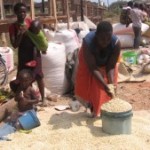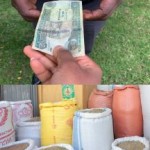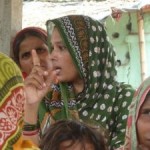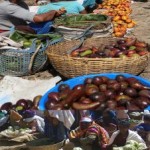Maize is an important staple in Malawi, contributing about 66 percent of calories to typical household diets. Most of non-seed maize is produced by smallholder farmers while large farms mainly produce seed maize. Thus, the nation’s food security and poverty reduction is dependent on the maize market. However, maize retail prices are high whereas producer >> Read more Source: Malawi Strategy Support Program
Payment modality preferences: Evidence from Ethiopia’s Productive Safety Net Programme
ESSP Working Paper 125, by Kalle Hirvonen and John Hoddinott. Abstract: Economists typically default to the assumption that cash is always preferable to an in-kind transfer. We extend the classic Southworth (1945) framework to predict under what conditions this assumption holds. We take the model to longitudinal household data from Ethiopia where a large-scale social >> Read more Source: Ethiopia Strategy Support Program
Event: Soft launch of the project-level Women’s Empowerment in Agriculture Index
Earlier this year, the Gender, Agriculture, and Assets Project, Phase 2 (GAAP2) launched the pilot version of the project-level Women's Empowerment in Agriculture Index (pro-WEAI), a new survey-based index for measuring empowerment, agency, and inclusion of women in the agriculture sector. On October 25th, the GAAP2 team will introduce the latest version of the pro-WEAI at a special […] Source: Women’s Empowerment in Agriculture Index (WEAI)
Egypt’s Takaful and Karama cash transfer program: Evaluation of program impacts and recommendations
[available in English and Arabic]
Egypt has been providing cash to poor households through its first conditional cash transfer program, Takaful and Karama, a social protection program run by the Ministry of Social Solidarity (MoSS), since March 2015. Takaful (“Solidarity”) supports poor families with children under 18, while Karama (“Dignity”) supports the elderly poor and people living with disabilities. The cash transfer program has enrolled 2.25 million families across all of Egypt’s governorates. Source: IFPRI Egypt Country Office
Affordability of fruits and vegetables in Ethiopia
ESSP Research Note 70, by Kalle Hirvonen, Abdulazize Wolle, and Bart Minten. Abstract: As in many other low-income countries, fruit and vegetable (FV) consumption is very low in Ethiopia. Consequently, micronutrient deficiencies, such as for Vitamin A, are widespread, and more than half of young Ethiopian children suffer from anemia. Efforts to increase FV consumption >> Read more Source: Ethiopia Strategy Support Program
- « Previous Page
- 1
- …
- 831
- 832
- 833
- 834
- 835
- …
- 873
- Next Page »




